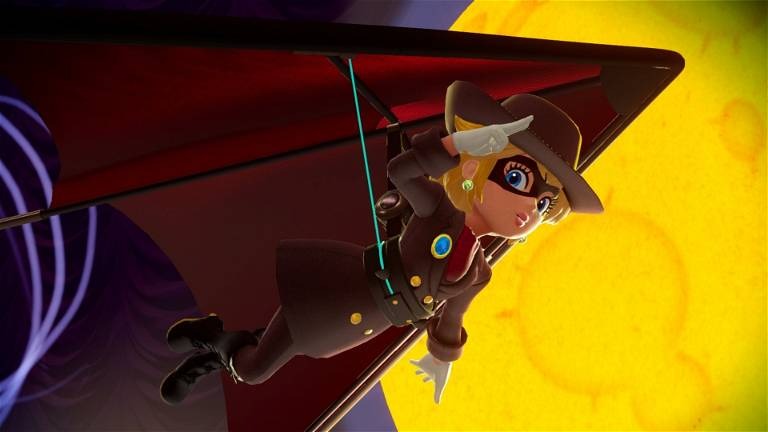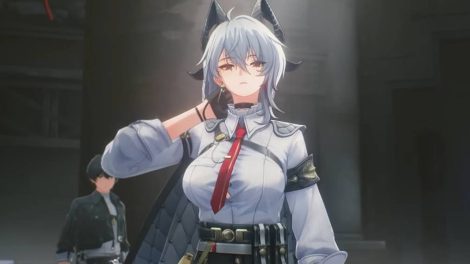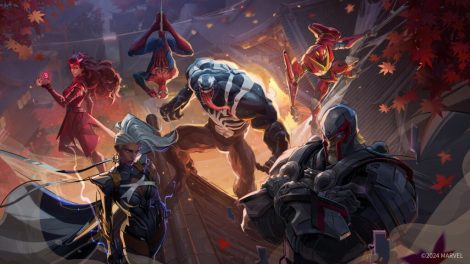Nintendo has once again captured the hearts of gamers with the release of Princess Peach: Showtime, a game that showcases the iconic Princess Peach in a starring role. But what’s equally intriguing is the revelation of the game’s developers, a detail that Nintendo had kept under wraps until the game’s launch. This practice of maintaining developer anonymity is a long-standing tradition at Nintendo, one that has both intrigued and puzzled the gaming community.
The Enigmatic World of Nintendo’s Development Teams
In a move that surprised many, the credits of Princess Peach: Showtime finally shed light on the creative minds behind the game. Directed by Etsunobu Ebisu and developed by Good-Feel, this information remained a mystery until players saw the credits roll. Ebisu, known for his work on the beloved Goemon series, and Good-Feel, celebrated for their contributions to the Kirby and Yoshi franchises, were the hidden talents behind Princess Peach’s latest adventure.
This secrecy is not unique to Princess Peach: Showtime. Nintendo has a history of keeping the identities of its developers, and even some voice actors, like the voice of Mario, under tight wraps until a game’s release – or sometimes, not at all.
The Rationale Behind Nintendo’s Cloak of Anonymity
Nintendo’s decision to keep its developers in the shadows raises questions about its motivations. Is it a strategic move to keep the spotlight squarely on the game itself, avoiding the cult of personality that can overshadow the work? Or could it be an effort to protect its team from the pressure and scrutiny that can come from premature exposure?
While some fans relish the mystique of not knowing who’s crafting their favorite worlds, others crave transparency, wishing to celebrate and acknowledge the individuals behind the magic. This divergence in opinion keeps the conversation around Nintendo’s policy of secrecy lively and ongoing.

The Impact of Developer Anonymity on the Gaming Community
Nintendo’s approach to developer anonymity has a profound impact on the gaming community. On one hand, it preserves the magical and timeless feel of Nintendo games, allowing them to stand as pure products of imagination. On the other hand, it curtails the opportunity for fans to connect more deeply with the creators, understanding their inspirations, challenges, and the journey of the game’s creation.
Moreover, in an industry increasingly moving towards celebrating individual creators and developers, Nintendo’s stance remains an outlier. As the conversation around mental health, creative rights, and developer recognition grows louder, the gaming giant’s secretive policy might come under more scrutiny.
Looking Ahead: The Future of Nintendo’s Secrecy
As Princess Peach: Showtime joins the ranks of Nintendo’s beloved titles, the revelation of its developers opens a window into the company’s enigmatic approach to game creation. Will Nintendo maintain its veil of secrecy, or will the evolving landscape of the gaming industry and the desires of its community prompt a change in policy?
Nintendo’s strategy of keeping developers anonymous is a testament to its commitment to keeping the focus on the games themselves. Yet, as the gaming world evolves, so too might the balance between mystery and transparency. Whether this tradition of secrecy will continue to enchant or frustrate will depend on how Nintendo navigates the growing desire for connection between creators and consumers in the digital age.
Princess Peach: Showtime not only adds to Nintendo’s storied legacy but also sparks a broader discussion about the visibility of game developers and the value of acknowledging the individuals behind the screen. As we move forward, it will be interesting to see how Nintendo and the wider industry evolve in recognizing and celebrating the contributions of its creators.










Add Comment